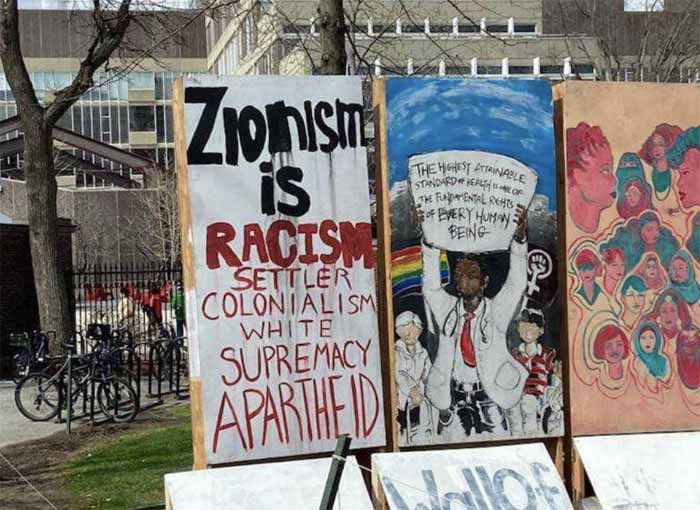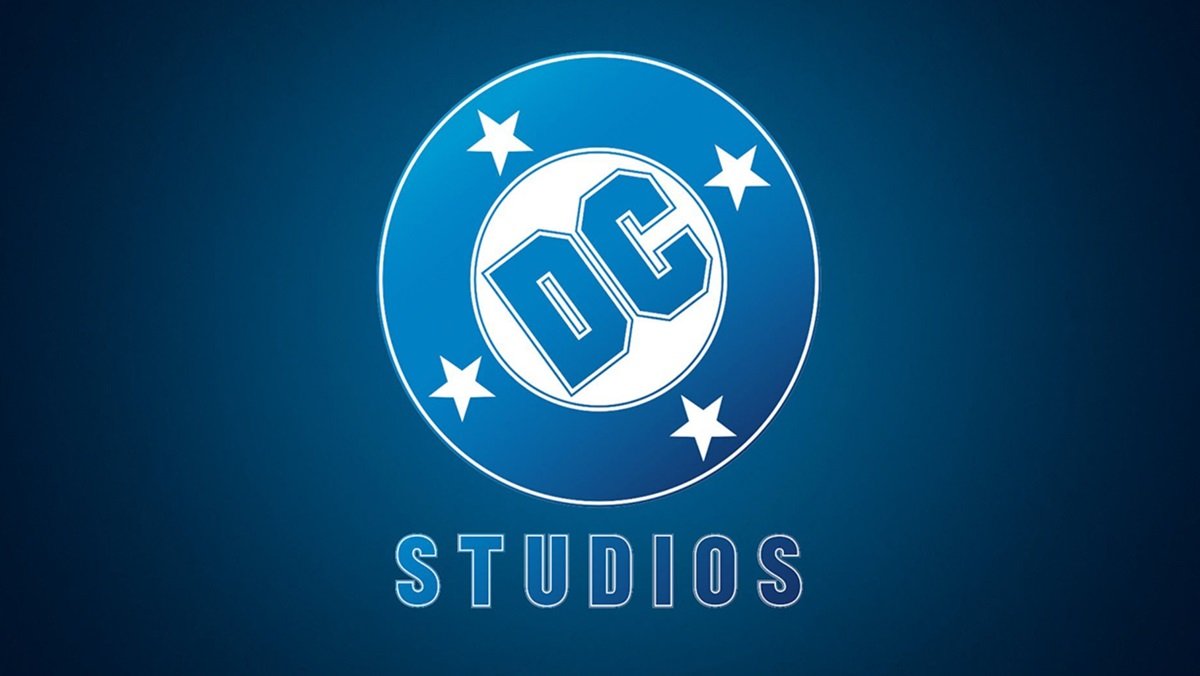Art is a potent form of resistance, and we are humbled by our peers’ passion and skill.” The PSC had organized various panels as well as a “Wall of Resistance” during Israel Apartheid Week in April; the wall had stated “Zionism is Racism Settler Colonialism White Supremacy Apartheid,” as well as other various anti-Israel slogans.
By: Aaron Bandler , Jewish Journal
May 2nd, 2022

Photo from Twitter
The Harvard Crimson student newspaper published an editorial endorsing the Boycott, Divestment and Sanctions (BDS) movement on April 29 that was met with fierce criticism on social media.
The editorial, titled “In Support of Boycott, Divestment, Sanction and a Free Palestine,” praised the Harvard College Palestine Solidarity Committee (PSC) for their “spirited activism” in raising awareness toward “the property and land confiscations, citizenship denials, movement restrictions, and unlawful killings that victimize Palestinians day in and day out. Art is a potent form of resistance, and we are humbled by our peers’ passion and skill.” The PSC had organized various panels as well as a “Wall of Resistance” during Israel Apartheid Week in April; the wall had stated “Zionism is Racism Settler Colonialism White Supremacy Apartheid,” as well as other various anti-Israel slogans.
The editorial also argued “that support for Palestinian liberation is not antisemitic.” “We unambiguously oppose and condemn antisemitism in every and all forms, including those times when it shows up on the fringes of otherwise worthwhile movements. Jewish people — like every people, including Palestinians — deserve nothing but life, peace, and security.” But the PSC’s actions have not crossed the line into antisemitism, the editorial argued.
The editors of the paper then argued that “Israel remains America’s favorite first amendment blindspot,” pointing to the anti-BDS laws passed in various states and alleging that pro-Palestinian students on college campuses have been harassed or blacklisted. “As an editorial board, we are acutely aware of the privilege we hold in having an institutional, effectively anonymous byline,” they wrote. “Even on this campus, many of our brave peers advocating for Palestinian liberation can be found on watchlists tacitly and shamefully linking them to terrorism. These twin factors — the extraordinary abuses and our privileged ability to speak to them and face comparatively less unjustified retribution — compel us to take a stand. Palestinians, in our board’s view, deserve dignity and freedom. We support the Boycott, Divest, and Sanction movement as a means to achieving that goal.” The editorial then argued that economic boycotts helped end apartheid South Africa and that Israel is creating “indefinite statelessness” for the Palestinians with “ethnonationalist legislation and a continued assault on the sovereignty of the West Bank through illegal settlements.”
The editorial concluded with an acknowledgement that the “blunt tool” of BDS could “backfire.” “But the weight of this moment — of Israel’s human rights and international law violations and of Palestine’s cry for freedom — demands this step,” they argued. “As a board, we are proud to finally to finally lend our support to both Palestinian liberation and BDS — and we call on everyone to do the same.”
Various Jewish and pro-Israel groups and activists slammed the editorial. Anti-Defamation League (ADL) CEO Jonathan Greenblatt tweeted that the editorial “is beyond disturbing.” “Contrary to its claims, endorsing BDS does nothing to help Palestinians & only serves to delegitimize Israel’s existence, and isolate & intimidate the Jewish community, especially on campus,” he wrote. “Moreover, equating #Zionism w/ White Supremacy is outrageously false, & calling Israel an apartheid state is absurd.” Greenblatt linked to a page on the ADL’s website calling the Israeli apartheid allegation “inaccurate, offensive, and often used to delegitimize and denigrate Israel as a whole.” “The anti-Israel display mentioned in the piece shows no understanding of the region’s past or present,” the ADL CEO added. “It just spreads misinformation.”
StandWithUs similarly tweeted that the Crimson editorial is “a stain on the newspaper and @Harvard as a whole.” “They claim the recent “wall of resistance” on campus promoted, ‘well-established… facts’ and ‘Palestinian freedom and sovereignty.’ In fact, it erased 3,000 years of Jewish history and smeared countless people who support Jewish freedom and sovereignty alongside Palestinians,” the pro-Israel education organization argued. “They claim to oppose antisemitism, while supporting a campaign to end Israel’s existence – a form of antisemitism according to the vast majority of Jews. Apparently, @thecrimson knows more about anti-Jewish bigotry than the people who face it every day.” StandWithUs also criticized the editorial for failing to mention that 15 Israelis have been killed in terror attacks over the past few weeks and noted that the BDS movement has ties to terror organizations like Hamas and Islamic Jihad.
“None of this helps empower Israelis and Palestinians to build a better future together,” StandWithUs wrote. “All it does is fuel more hate and maybe make a few privileged @Harvard students feel better about themselves.”
They claim the recent "wall of resistance" on campus promoted, "well-established… facts" and "Palestinian freedom and sovereignty." In fact, it erased 3,000 years of Jewish history and smeared countless people who support Jewish freedom and sovereignty alongside Palestinians. pic.twitter.com/VyypHAwV0J
— StandWithUs (@StandWithUs) April 30, 2022
The "majority" @thecrimson cares so little for the lives of Israelis that they couldn't be bothered to mention the 15 people who were murdered in terrorist attacks against Israel in recent weeks. pic.twitter.com/wXs8AucwX9
— StandWithUs (@StandWithUs) April 30, 2022
None of this helps empower Israelis and Palestinians to build a better future together. All it does is fuel more hate and maybe make a few privileged @Harvard students feel better about themselves.
— StandWithUs (@StandWithUs) May 1, 2022
Judea Pearl, Chancellor Professor of Computer Science at UCLA, National Academy of Sciences member and Daniel Pearl Foundation President, tweeted that the editorial also failed to acknowledge “that Jewish ‘liberation’ – Israel- could use some support too” and that Jews and Palestinians both deserve “life, peace and a state, sending BDS to the roof.”
Orlee Marini-Rapoport, the Editorial Chair of the Crimson, tweeted that she is Jewish and encouraged people to read the editorial. “I’m so proud to be part of this thoughtful group,” she wrote.
Pearl replied by asking Marini-Rapoport if the editorial board considered saying “‘Jews, like Palestinians, deserve a state’, instead of your current version: ‘deserve nothing but life, peace, and security,’ which, as you know, is taken from BDS poetry book ‘A World Without Israel.’” In a follow-up tweet, Pearl noted that “freedom of expression” doesn’t apply to restaurants that hang signs saying, “Not serving Blacks or Zionists.” “[The] Crimson Editorial is a shameful ‘Not Serving’ sign on a campus newspaper; Harvard will reject hanging it on any other program,” he wrote.
Ellie Cohanim, the former Deputy Special Envoy to Monitor and Combat Antisemitism, also tweeted to Marini-Rapoport: “Is it time yet to admit we have failed to pass down authentic Jewish values to the next generation? Is it time yet for legacy Jewish organizations to explore changing their entire mission so that we can stem this tide?”
Dr. Mike Harris, one of the co-founders of San Francisco Voice for Israel, replied to Marini-Rapoport: “Given that BDS leaders have made it clear on multiple occasions that the goal of BDS is the elimination of the Jewish state entirely, did your editorial board ignore that or endorse it? The first choice would speak poorly to your research and critical thinking skills.”
To read the original article, please click here .




